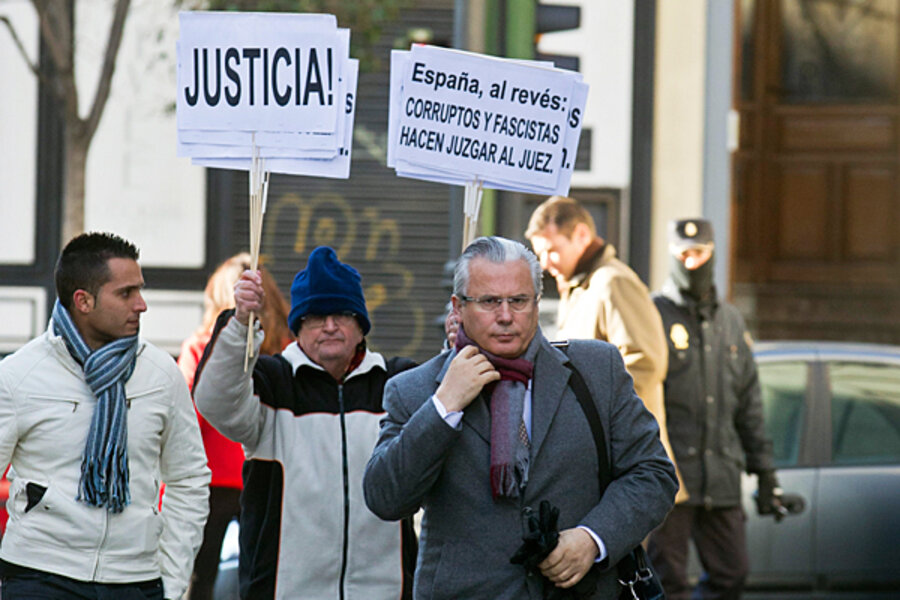Garzón is the first Spanish judge to face three separate but simultaneous trials, reports the Guardian. Some believe Garzón, who briefly served as a Socialist member of parliament, had political reasons for ignoring the amnesty law – the People’s Party is at a greater risk of being tied to the Franco era than the Socialists.
"Because of his huge ego, he thought that after going against Chile and Argentina, he would apply universal justice here in Spain. But he is not impartial. He is only interested in rightwing regimes,” said Clean Hands leader Miguel Bernard, formerly of the pro-Francoist National Front, reports the Guardian.
Garzón says he is innocent of all charges and that politics didn’t play a role in his judicial decisions. “There was no ideology in this, but there were thousands and thousands of victims whose rights had not been dealt with,” Garzón said.
Garzón supporters have lodged the same accusation of political motivation against conservative detractors. Human Rights Watch spokesman Reed Brody says the timing of the charges against Garzón are suspicious. The three cases were brought against him only a month after conservatives took power in Spain, reports NPR.
Despite the court saying that today’s ruling is not subject to an appeal, Garzón and his lawyer are determined to press on, reports Reuters.
"We shall carry on fighting, carry on appealing. We have a long road ahead, but I believe both he and I are more than strong enough," Garzon's lawyer Javier Baena said after the sentence.







